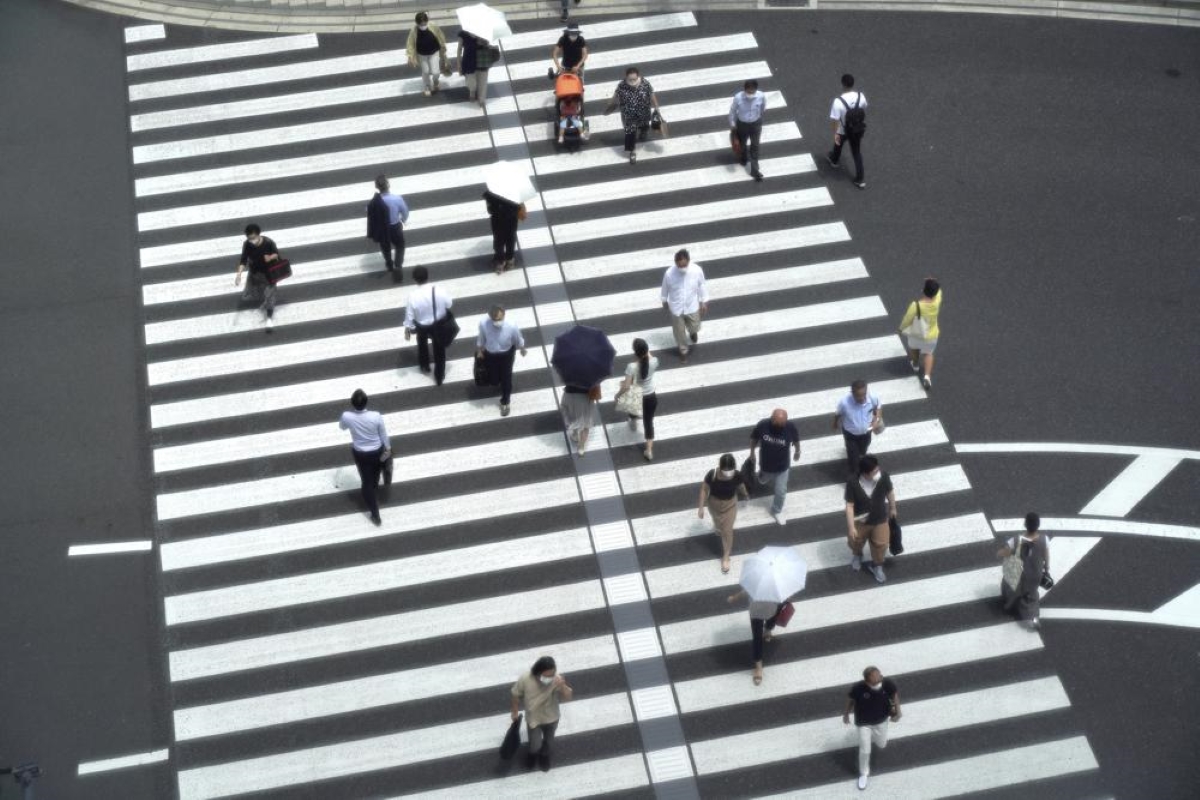Japan’s Path
Japan's enduring economic challenges serve as both a cautionary tale and a beacon of resilience.
Health Minister Norihisa Tamura said the spike in Tokyo despite being under the state of emergency for two weeks is an “alarming development that is different from anything we have seen before.”

People walk across a crossing near Tokyo Station in Tokyo.
With Olympics spectacle and an astounding number of virus infections, Japan is set to expand Covid-19 state of emergency in Tokyo to neighbouring areas and the western city of Osaka.
Japan is floundering with its border healthcare and a government panel approved the plan of putting Saitama, Kanagawa and Chiba, as well as Osaka, under the state of emergency from Monday until 31 August. The measures already in place in Tokyo and the southern island of Okinawa will be extended until the end of August.
Prime Minister Yoshihide Suga is scheduled to officially announce the measures later Friday. Five other areas, including Hokkaido, Kyoto, Hyogo and Fukuoka, will be placed under less-stringent emergency restrictions.
Advertisement
Tokyo has reported a record rise in cases for three days in a row, including 3,865 on Thursday. The cases have doubled since last week, and officials have warned they may hit 4,500 a day within two weeks.
At Friday’s meeting of government experts, Health Minister Norihisa Tamura said the spike in Tokyo despite being under the state of emergency for two weeks is an “alarming development that is different from anything we have seen before.”
Nationwide, Japan reported 10,687 confirmed cases Thursday, exceeding 10,000 for the first time.
Japan has kept its cases and deaths lower than many other countries, but its seven-day rolling average is growing and now stands at 28 per 100,000 people nationwide and 88 per 100,000 in Tokyo, according to the Health Ministry.
The emergency measures focus on an alcohol ban at eateries and karaoke bars and their shortened hours, but they have become less effective because people are only requested to stay and work from home. Many were defying the measures at a time when the more infectious delta strain is spreading.
Tokyo Gov. Yuriko Koike noted that adults in their 30s or younger dominate recent cases and reminded them of following basic anti-virus measures including mask-wearing and avoiding having parties.
As of Thursday, 27 per cent of the Japanese population has been fully vaccinated. The percentage of the elderly who are fully vaccinated is 71.5 per cent.
Advertisement